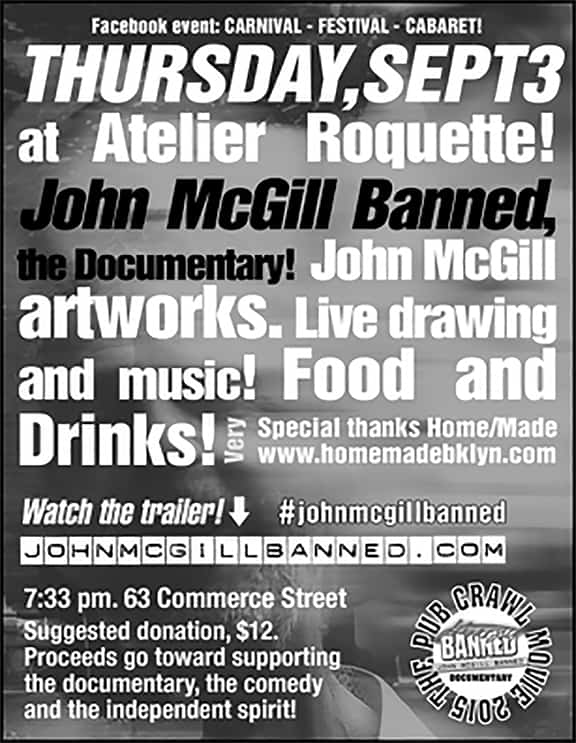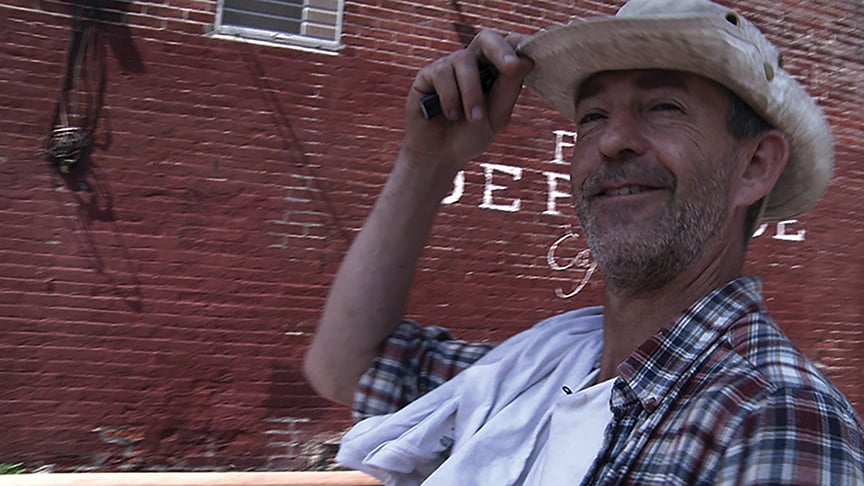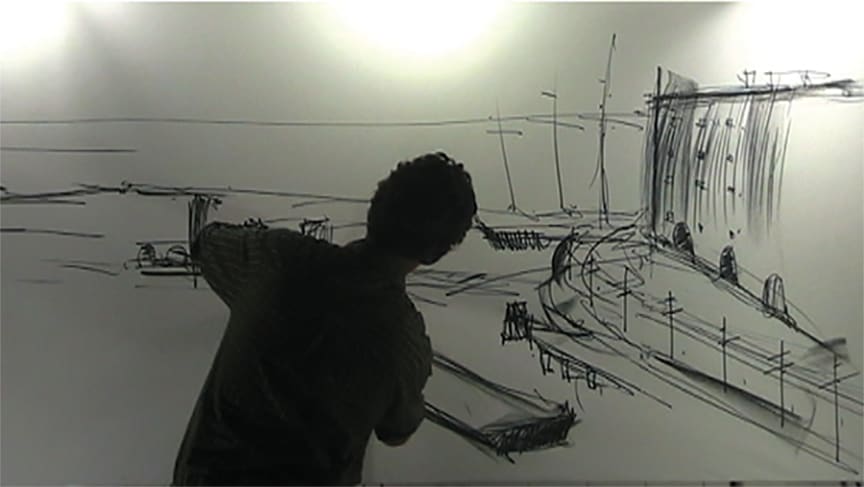On the evening of May 23, 2013, Michael A. Broz pointed at John McGill and said, “You’re my character!” The next day the duo embarked on the project. 
Michael had previously worked in Los Angeles as a cameraman. When his daughter was born, he began working in graphic design. Once she was raised, Michael decided to once again pursue filmmaking. nut this time, he wanted to create his own films.
Michael started looking for projects as he moved further away from graphic design. He joined a Meet Up group called POV (Pont of View). When he expressed interest at the first meeting, a director asked him if he had a story. He did not. The director asked if Michael had a character. He didn’t.
After the meeting John phoned Michael and invited him to a music studio where he records with Adam Meyer because John joked that Michael was supposed to bring beer.
Michael quipped back, “I got there and there was no beer. I think I went back out to get it.”

On that fated night, Michael realized he did have a character. And that character, John McGill, also had a fascinating story.
John was working on lyrics to a song. “Adam asked me to help them do lyrics for a soft porn foot-fetish song for YouTube. And I said if you just put ‘soft porn foot-fetish song for YouTube’ on a T-shirt, you’ll make more money. Then he went to take a s—. When he came back, I had 20 minutes of foot fetish for him.”
John and Michael met at an open mike night at Court and Sparks, a now shuttered bar on the edge of Red Hook. Broz was fascinated with McGill’s “intense and deep, unedited lyrics,” as well as his artistic ability. They soon collaborated on John creating live drawings as a performance piece, in addition to his musical routines.
On May 24, one day after Michael’s revelation, he and John started filming. The film was shot over the next five weeks in a handful of days. “Initially, I just wanted to get back into film,” he said. “I cut my teeth on John McGill.”
As the story unfolded, and as John’s tale was being told, Michael realized his original intention of “capturing and packaging” John’s music was only the beginning of a much bigger picture. “Initially, I just wanted to get back into film. There was discovery along the way. It was a story to tell,” he said.
John McGill Banned (JMB) was the result of more than 10 hours of footage. The entire movie is completely unscripted. As we see John working on a variety of projects throughout the city, he recounts bits and pieces of his life.
“There are things in there that I didn’t want, but as I began to see it, it’s a story. What I like about it is that it’s instantaneous; nothing planned, no scripting.
That’s kind of the way I draw,” John said.
Teddy Roosevelt famously said, “Do what you can, with what you have, where you are.” John says, “Life is always in motion; I’m riding the wave.” John’s father used to tell him, “Take it easy; do it right. If you can help somebody along the way, help them.” All of this is reflected is his art, his music and his mortal existence – unplanned, unscripted, moment to moment.
A press release describes the film as a “ridiculously entertaining, dark comedy/biopic that shadows Brooklyn’s own artist, craftsman, nomad and enigma. The film looks at the nomadic life of John McGill living in and around Brooklyn, dealing with the random and formidable demons shaping his life.”
JMB reveals an ever-optimistic man with tragic memories that have shaped his present day life. John is revealed as a craftsman, “a jack-of-all-trades, master of none.” Each scene tells a mini st

ory of his portrait through his own perspective.
The film was accepted into the Art of Brooklyn Film Festival and made it’s world screening premiere among more than 40 other films at St Francis College on May 15. Michael was one of five directors chosen for a talkback session following the premiere.
The editing process took more than nine months because Michael had to “keep trimming it down to get to the core of the story.” The result is a one hour film that inspired, entertains, touches and baffles.
“It was always about the story. The themes that run through it became an arc – became a structural element that [also] ran through it,” Michael explained.
“We were waiting tooth and nail to see what we’d done,” John said. “I didn’t plan to do it, I was just doing it. If I’d thought about it, it wouldn’t be what it is. You just have to hit it. And you get what you get.”
On September 3, Atelier Roquette will host a screening of the film along with a variety of other elements. “Nomophobia,” a new short about life without smart phones, created by Michael will also be shown. Comedian, Mara Weisband will emcee the evening. John’s band, also called John McGill Banned, will be playing.
John’s artwork will be on sale and he will also be doing live drawings all night.
The show begins at 7:30 pm at 63 Commerce Street in Red Hook, Brooklyn. Suggested donations of $12 will go toward supporting the documentary.








